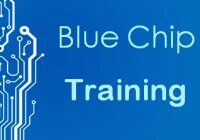 Overview
Overview
With a market share of 60%, WordPress is the Content Management System (CMS) of choice for many of the world’s most high-profile websites. PHP is a server side language, which powers about 82 percent of the web.
In this instructor-led, live training (onsite or remote), participants with little or no previous programming experience will learn how to customize a WordPress website using PHP.
By the end of this training, participants will be able to:
- Set up the development tools needed to quickly start working PHP
- Understand and alter the various types of PHP files in WordPress
- Understand PHP syntax (conditional statements, loops, functions, etc.)
- Write their own plugin or a theme within WordPress
- Debug, deploy and troubleshoot a WordPress website
Audience
- Web designers
- Content creators with technical skills
- Business owners with technical skills
- Developers with no previous experience with PHP
Format of the Course
- Interactive lecture and discussion
- Lots of exercises and practice
- Hands-on implementation in a live-lab environment
Note
- To request a customized training for this course, please contact us to arrange.
- To learn more about WordPress, please visit: https://wordpress.org/
Requirements
- Experience with WordPress.
- An general understanding of HTML, CSS and JavaScript.
Course Outline
Introduction
- PHP as the foundation for WordPress
Setting up the Development Environment
Overview of WordPress Features and Architecture
Overview of PHP Syntax
Accessing PHP Files in WordPress
Accessing Built-in Functions in WordPress (Template Tags)
Writing Conditional Code with Conditional Statements and Loops
Editing an Existing WordPress Theme
Creating Your Own Theme in PHP
Writing a Function in WordPress
Working with Hooks (Actions and Filters)
Variables in WordPress
Writing a Plugin in PHP
Debugging PHP Code
PHP Coding Standards and Best Practices
Deploying the Website
Troubleshooting
Summary and Conclusion
